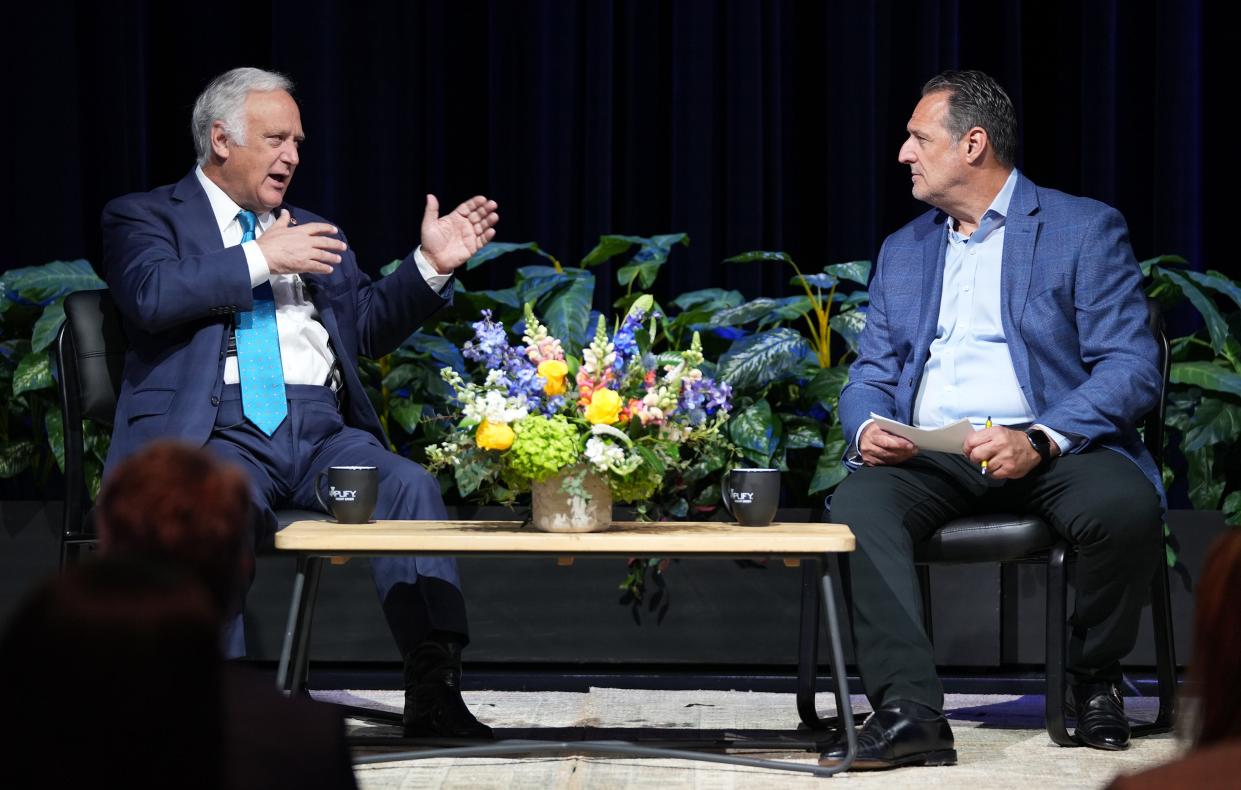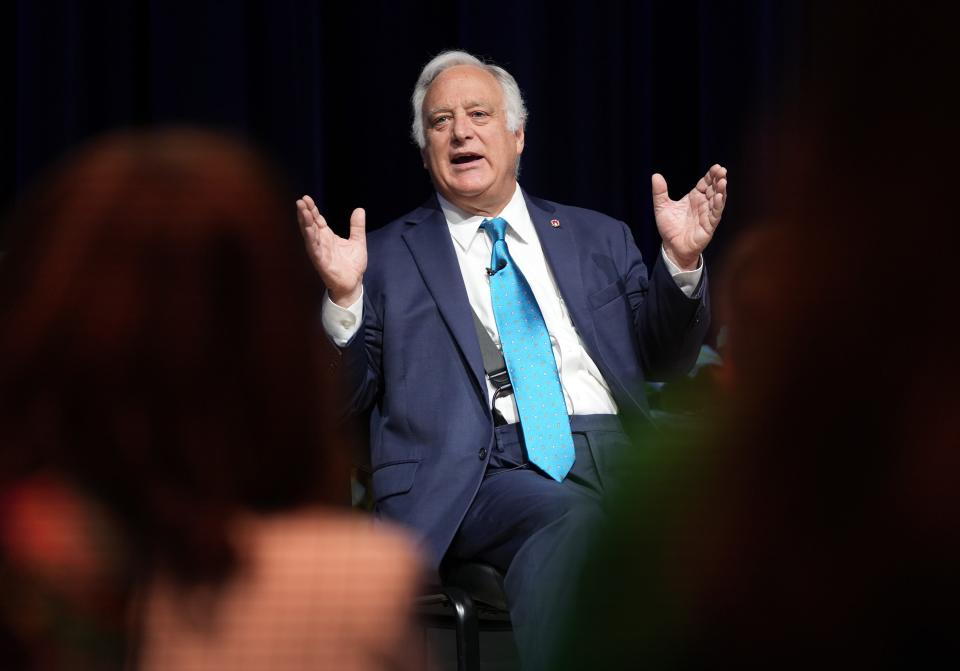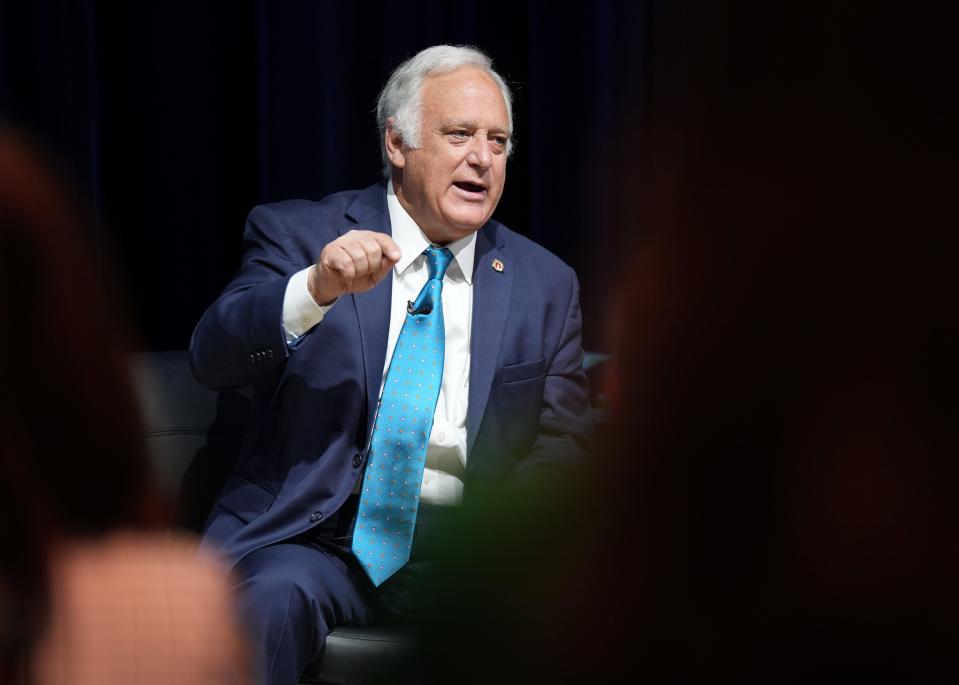Three takeaways from Wednesday's summit on affordability in Central Texas

- Oops!Something went wrong.Please try again later.
Affordability in Austin has been at the forefront of conversations for years as many residents struggle to afford to live in the area, citing the high housing prices, stagnant wages and other increased cost of living factors, such as childcare and groceries.
On Wednesday, Amplify Credit Union hosted an affordability summit at Austin PBS, bringing together experts in the workforce and finance sectors to discuss the future of affordability in Austin and how to address it.
Panelists Tamara Atkinson, CEO of Workforce Solutions Capital Area; Lourdes G. Zuniga, executive director of Financial Health Pathways; and Joana Ortiz, president and CEO of Austin Young Chamber, said solving affordability issues takes using a people-first approach.
Mayor Kirk Watson joined the conversation to discuss how the city is working to address the issue from a policy standpoint, including the city’s latest moves on equitable transit-oriented developments, eliminating parking mandates, investing in child care and streamlining development process, including permitting.
Here are 3 takeaways from the event:
More: Austin starts pilot program to prevent housing displacement

“We are 2/3 behind” in compensation vs. housing expenses
In terms of compensation keeping pace with housing expenses in Austin, Stacy Armijo, chief experience officer at Amplify Credit Union, said “we are two-thirds behind.”
She said back in 2001 as a new college graduate, she was paid $25,000 annually and her rent was about $1,200 a month for her two-bedroom apartment. Today, her same position pays about 32% more, and when she looked back at that same two-bedroom apartment, its rent had increased 109%, she said.
More: How Austin suburbs went from one-school towns to booming districts

Working together to be part of the solution
Regionally, and locally, employers and organizations should be looking at how to be part of the solution, experts said. That means looking at compensation and how that relates to the cost of child care and transportation, and flexible work environments.
Child care is the second-leading cost for families behind housing, experts have said, and coupled with costs for car maintenance and insurance, which are needed in the Central Texas area to get to places like work, doctor’s offices and grocery stores, it can make it difficult for working families to live in the area.
Tamara Atkinson, CEO of Workforce Solutions Capital Area, said that means employers should take a closer look at how to better compensate workers and prepare them with the “skills that they need to earn good wages” so they can afford to live in the community. Workforce solutions is the leadership and governing body for the regional workforce system and has launched a hire-local plan to address equity and skills gaps through training.
Zuniga and Ortiz also suggested offering public transit stipends for workers to make commuting easier and less stressful; flexibility in work hours and location; and being innovative and smart with job creation opportunities; and repurposing empty workspace for housing or other community needs.
More: Travis County plans to invest $51 million in these community services. Here's what to know
Addressing affordability through local policies
Zuniga said that lower income communities are struggling with barriers and challenges to building their wealth and generational wealth, and, on top of company investment, there was also a need for critical policies from local decisionmakers to allocate resources to those who need it most.
She said that means everyone has the opportunity to build their wealth through a good education, which leads to good jobs and then a great income that can allow people to live and work in Austin and Central Texas.
Watson said the city was working on all kinds of policies and changes to processes to help address the issues of affordability, including the creation of equitable, transit-oriented developments in conjunction with building Project Connect, making housing and transportation affordable and accessible.
Earlier this year, the City Council took its first steps in amending the city code to ease some restrictions on child care operations to streamline processes, lessening wait times for permits, and therefore inflation costs on labor and materials. This month, the City Council also began the process of eliminating minimum parking requirements, which some say is a way to help address affordability.
“You're going to see a lot of those kinds of things,” Watson said. “I think this council has have a very pro-housing (focus) and part of what we are doing, I think, is focusing on those things that can be agreed upon and get things moving forward.”
This article originally appeared on Austin American-Statesman: Three takeaways from Wednesday's affordability summit in Central Texas

